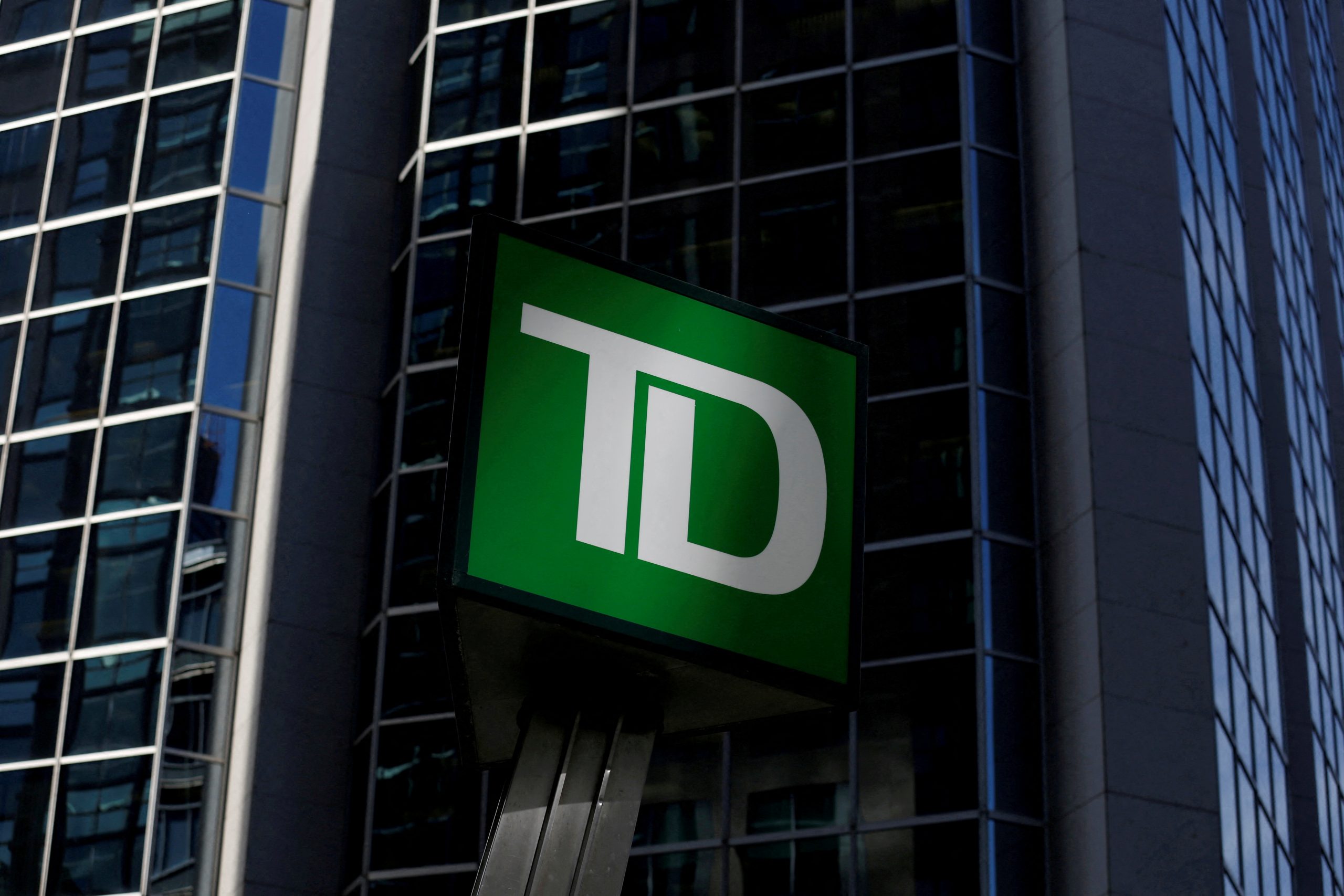Business
The tug-of-war between Glencore and Teck
In FEBRUARY TECK RESOUrCES finally announced its slow move into the future. The Canadian miner plans to spin off its relatively dirty steelmaking-coal operations. Under the plan, Teck would focus on mining copper and zinc, while continuing to get the majority of the severed coal company’s profits. Holders of Teck’s super-voting “class A” shares would retain control over the rump firm’s strategic moves for six years. After that its dual-shareholding structure would be scrapped.
Glencore, a much bigger commodity firm based in Switzerland, has something much more radical in mind. It proposes a merger between it and Teck that would then create two giant versions of Teck’s proposed entities. The first would amalgamate Glencore’s and Teck’s metals and minerals businesses. It would be listed in London and have an enterprise value of perhaps $100bn. With copper mining expected to make up roughly half its profits, “GlenTeck” would be a red-metal giant poised to take advantage of a green commodities supercycle. The second company would combine the parent firms’ coal businesses, to be listed in New York. This “CoalCo” would shovel all cash it generates to shareholders as the world weans itself off the black stuff.

Glencore publicly announced its unsolicited offer on April 3rd. Its boss, Gary Nagle, said that the deal, with an implied premium of 20% over Teck’s share price, would cut costs and unlock shareholder value. After swiftly rejecting the offer, his opposite number at Teck, Jonathan Price, called the transaction a “non-starter”, complaining that it would expose Teck’s shareholders to Glencore’s thermal-coal business, which may command less enthusiasm from investors than coking coal for steel mills. Mr Nagle fired back on April 11th, offering Teck’s shareholders their quarter of CoalCo in cash rather than shares. If later this month shareholders scupper Teck’s original restructuring plan, which requires approval from supermajorities of both share classes, the firm could be forced to the negotiating table.
Even then, securing a merger will be difficult. It would be the biggest acquisition of a Canadian miner since 2007. The Keevil family, which owns many of Teck’s super-voting shares, is a hard sell. Norman Keevil, the patriarch and Teck’s chairman emeritus, has made plain his desire to keep the firm in Canadian hands. Canada’s government shares his wariness: it is tightening foreign-investment rules in its critical-minerals sectors.
To placate the Keevils and the Canadian authorities, Glencore promises to keep GlenTeck’s industrial head office in Canada. In addition, it has pledged domestic employment guarantees and a secondary listing on Toronto’s stock exchange.
If Glencore’s overtures to Teck fail despite all these sweeteners, the Swiss company may still want to put its coal business up for sale. Other mining bosses may be ready to start shaking hands, too. On April 10th Newmont, an American mining giant, raised its takeover offer for Newcrest, an Australian gold miner, to almost $20bn. Years of dwindling capital expenditure and a commodities boom have left miners flush with cash. With their shares often trading close to the replacement value of their assets, buying looks more attractive than building. ■

Business
CEO succession plans loom at TD as it takes financial hit in money laundering probe

Toronto — Toronto-Dominion Bank (TD) has allocated a staggering US$3 billion to settle ongoing criminal and civil investigations in the United States over alleged shortcomings in its anti-money laundering (AML) controls. This move has intensified speculation around the future leadership of the bank, as current CEO Bharat Masrani’s succession plan gains urgency.
National Bank Financial analyst Gabriel Dechaine noted that the bank’s U.S. regulatory challenges have accelerated the need for a clear succession plan. “Succession questions have become even more intense because of the bank’s U.S. regulatory issues,” Dechaine commented, pointing out that under typical circumstances, Masrani’s replacement process would already be in progress. Masrani, who has led the bank for a decade, is 67 years old, making the timing of a transition a critical focus.
TD’s latest financial provision includes setting aside US$2.6 billion in anticipation of fines related to the AML probe, adding to the US$450 million reserved in April. This significant financial hit has raised concerns about the bank’s leadership stability, especially as several top executives, once considered potential successors to Masrani, have departed.
Among those who left are Michael Rhodes, former head of TD’s personal banking business, and Teri Currie, his predecessor, both of whom were seen as strong candidates for the CEO position. Other notable exits include Katy Boshart, now the CEO of Manulife Bank, and Tim Hockey, who left TD Ameritrade in early 2020.
Riaz Ahmed, currently CEO of TD Securities and head of wholesale banking, remains a potential internal candidate for the CEO role. However, at 61, some analysts consider him a less likely choice compared to younger executives like Leo Salom, who currently leads TD’s U.S. retail operations. Salom’s role is considered pivotal, making a leadership transition potentially disruptive to the stability of the U.S. division.
Dechaine suggested that while the regulatory fine provision might “clear the deck” for CEO succession, it also opens the door for the possibility of an external candidate taking the helm. Despite the uncertainty, there is some optimism that the global settlement of the AML issues could trigger a “relief rally” among investors, who have been waiting for a resolution to the investigations that have weighed on TD’s performance for over a year.
However, TD faces additional challenges. The bank’s recent decision to sell shares in Charles Schwab Corp. to strengthen its capital position will impact earnings and reduce TD’s ownership in Schwab. Moreover, Dechaine warned of potential non-financial penalties, including the possibility of an asset cap on TD’s U.S. operations. Such restrictions could limit the bank’s growth, leading to sub-par earnings compared to its peers and a potential decline in its valuation.
In response to the ongoing scrutiny, Masrani emphasized TD’s commitment to addressing the deficiencies in its U.S. AML program. “We recognize the seriousness of our U.S. AML program deficiencies and the work required to meet our obligations and responsibilities is of paramount importance to me, our senior leaders, and our boards,” he stated.
As TD navigates these turbulent waters, the focus on leadership succession will only intensify, with both internal and external candidates likely being considered for the top job. How TD manages this transition, alongside resolving its regulatory challenges, will be crucial in determining its future direction and stability.
Business
Canada moves to end rail shutdown quickly; CN, CPKC prepare to resume services
OTTAWA, Aug 22 (Reuters) – Workers at Canadian National Railway (CNR.TO), opens new tab will begin returning to work on Friday, the Teamsters union said, hours after the Canadian government moved to end an unprecedented rail stoppage.
The union said the work stoppage at Canadian Pacific Kansas City (CP.TO), opens new tab would continue pending an order from the Canadian Industrial Relations Board (CIRB). The union and company officials are scheduled to meet with the board on Friday morning.
Advertisement · Scroll to continue
Canada’s top two railroads, Canadian National Railway and Canadian Pacific Kansas City had locked out more than 9,000 unionized workers earlier on Thursday, triggering a simultaneous rail stoppage that business groups said could inflict hundreds of millions of dollars in economic damage.
The Canadian government on Thursday announced that it would ask the country’s industrial relations board to issue a back-to-work order that should come soon.
The CIRB, which is independent, will now consult the companies and unions before issuing an order.
CN had said it would end its lockout on Thursday at 6 p.m. ET (2200 GMT). CPKC said it was preparing to restart operations in Canada and further details on timing would be provided once it received the CIRB’s order.
“I assume that the trains will be running within days,” Labour Minister Steven MacKinnon told reporters.
As well as requesting a back-to-work order, MacKinnon asked the board to start a process of binding arbitration between the Teamsters union and the companies, and extend the terms of the current labor agreements until new agreements have been signed.
The sides blamed each other for the stoppage after multiple rounds of talks failed to yield a deal.
In a new statement during the early hours on Friday, the Teamsters union posted on X, opens new tab that it had taken down picket lines at CN.
Business
Foy’s Irish Bar Staff Celebrate $1 Million LottoMax Win first time doing a group buy
-

 News14 hours ago
News14 hours agoBlue Jays sweep Red Sox, Jansen in doubleheader
-

 News19 hours ago
News19 hours agoBrazil’s Lula praises Olympic athletes at presidential palace
-

 News20 hours ago
News20 hours agoDefending champion Montreal Carabins top first U Sports football rankings of season
-

 News9 hours ago
News9 hours agoCanadaNewsMedia news August 2024: Cabinet retreat turns gaze to U.S. trade relations
-

 News18 hours ago
News18 hours agoLawyer for Coutts protester suggests jury rushed to judgment before long weekend
-

 News6 hours ago
News6 hours agoChina accuses Canada of protectionism over 100% tariffs on electric vehicles
-

 News6 hours ago
News6 hours agoParalympic Games in Paris will stand out for veteran goalball captain Amy Burk
-

 News23 hours ago
News23 hours agoTrudeau announced reduction in number of migrant workers ignores abuse concerns





















